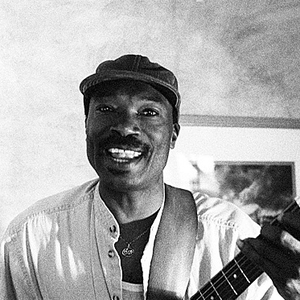
| Trackimage | Playbut | Trackname | Playbut | Trackname |
|---|---|---|---|---|
| 82084829 | Play | Sa Ntima | 00:00 Tools | |
| 82084830 | Play | Santi Ma (Congo) | 00:00 Tools | |
| 82084831 | Play | Midi Passe | 00:00 Tools | |
| 82084832 | Play | Tchidiba | 00:00 Tools | |
| 82084833 | Play | Butch | 00:00 Tools | |
| 82084834 | Play | Zizi Kumbele | 00:00 Tools | |
| 82084835 | Play | Sa Ntima (Congo) | 00:00 Tools | |
| 82084836 | Play | Butché | 00:00 Tools | |
| 82084837 | Play | Midi Passé | 00:00 Tools | |
| 82084838 | Play | Butebe | 00:00 Tools | |
| 82084839 | Play | Mo Mambu | 00:00 Tools | |
| 82084840 | Play | Mwana Congo | 00:00 Tools | |
| 82084844 | Play | Sa Ntima [Congo] | 00:00 Tools | |
| 82084841 | Play | Tchidiba (Forgetfulness), Congo | 00:00 Tools | |
| 82084842 | Play | Ta Longana | 00:00 Tools | |
| 82084843 | Play | Tchidiba (Forgetfulness) | 00:00 Tools | |
| 82084845 | Play | Mbemba | 00:00 Tools | |
| 82084846 | Play | Dur Dur | 00:00 Tools | |
| 82084847 | Play | Samba NGO-Midi Passe (Congo) | 00:00 Tools | |
| 82084851 | Play | Sa Ntima (Samba Ngo) | 00:00 Tools | |
| 82084848 | Play | Yebisa | 00:00 Tools | |
| 82084849 | Play | Mi Mvuka | 00:00 Tools | |
| 82084850 | Play | To Tuna | 00:00 Tools | |
| 82084852 | Play | Midi Passe (Congo) | 00:00 Tools | |
| 82084853 | Play | Midi Passe [Congo] | 00:00 Tools | |
| 82084854 | Play | Butch・ | 00:00 Tools | |
| 82084855 | Play | Midi Passé (Past Noon) | 00:00 Tools |

-
- 7,723
- plays
-
- 2,596
- listners
-
- 7723
- top track count
Samba Ngo is a charismatic performer, a master guitarist, singer and composer whose infectious, danceable rhythms and powerful lyrics have influenced two generations of world musicians. Samba grew up listening to the wood and palm-fiber-stringed nsambi, and the likembe (thumb piano) in his village in the Congo, and from these sounds he has developed a unique guitar style. Raised in tumultuous times, his lyrics, sung in English, French, and Lingala, his native tongue, are politically potent, but always carry a message of hope. Through his long career in Africa, France and the United States, with 19 albums, several groundbreaking groups, and a host of concert appearances to his credit, Samba Ngo has established himself as one of West Africa’s most important musical ambassadors. Ngo’s (pronounced en-go) musical roots go back to the tiny village of Dibulu, in what is now the Democratic Republic of Congo. His father was an herbal healer, or nganga, who played the nsambi and used chants and songs as well as herbal medicines in his healing rituals. Samba learned the natural healing power of music by watching his father, and soon learned to play the likembe and guitar to accompany him. In 1964, as a teenager, Ngo moved to the city of Brazzaville, and joined the influential band Echo Noire as their guitarist. The sixties were a turbulent period in the region as political upheaval shook the Congo and part of the country became Zaire. Ngo and the band immigrated to Paris and quickly achieved renown throughout Europe and Africa. In 1971, Ngo, along with Antoinne Nkouka and Father Christian De La Bretesche, formed the group M’Bamina, which spent the next 14 years touring worldwide, recording nine albums. In 1986 Samba decided to move to the United States to gain more studio experience and broaden his musical horizons. Since that time he has never looked back. Now based in Santa Cruz, California, Ngo still makes frequent trips back to Paris, where he is a revered figure. At the moment he is working on several new recordings with his French producer. Samba is also collaborating with the staff at the Louvre Museum to revive the work of the 18th century black composer Chevalier St. Claire, a long range project which will include several choreographed pieces. In October Samba Ngo will return to play several concerts in the Republic of Congo. It will be his first trip home in many years, in what should be a triumphal return for one of that nation’s cultural treasures. Read more on Last.fm. User-contributed text is available under the Creative Commons By-SA License; additional terms may apply.